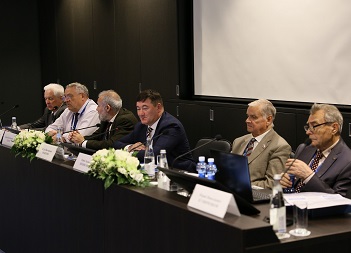
Issues associated with engineering in Russia and the place of Russian engineers in the global occupational community became the main subjects discussed at the practical seminar for the oil and gas industry historical studies, which took place on the last day of St. Petersburg International Gas Forum.
Igor Mescherin, President of the National Association of Engineers of Russian Federation, remarked that within the last 100 years rights of engineers in Russia changed substantially. Today, Russian professionals have no chances of implementing their ideas at home, whereas graduates of technical universities have no guarantees of employment or reasonable reward for their work. This endemic issue is caused by absence of some engineering law in Russia that could determine rights and liabilities for the profession, Igor Mescherin believes. In such a situation, Russian specialists have to work in conditions that are much worse than their foreign colleagues have, and this makes Russian engineers uncompetitive in the global market.
Another subject that the participants considered through the historic prism was import substitution. Alexander Krotov, Assistant Professor at the Power Plant Engineering Department at Bauman Moscow State Technical University reminded the audience that one of the first examples of favorable import substitution was when in the 19th century Russia started to make steam engines that deprived English analogues of their competitive edge. Alexander Krotov is sure that in the 21st century just reproducing some product won’t suffice: it is necessary to substitute import technologies and equipment, too. Andrey Bodrov, CEO at Turbotect Saint-Petersburg Ltd., is confident that is why trained engineers are needed.
Valentin Kosenkov, Representative of Fuel and Energy Complex Enterprises Union (SPTEK) Gas Club, dwelled on the issue of import substitution program fulfillment in the field of equipment for liquefied natural gas (LNG) production. He remarked that today Russia’s demand for equipment required to produce average and heavy LNG is estimated at 200 bln rubles, and it is unlikely to go down in the nearest future. To solve this problem, producers of such equipment united in a production cluster under the guidance of REP Holding.